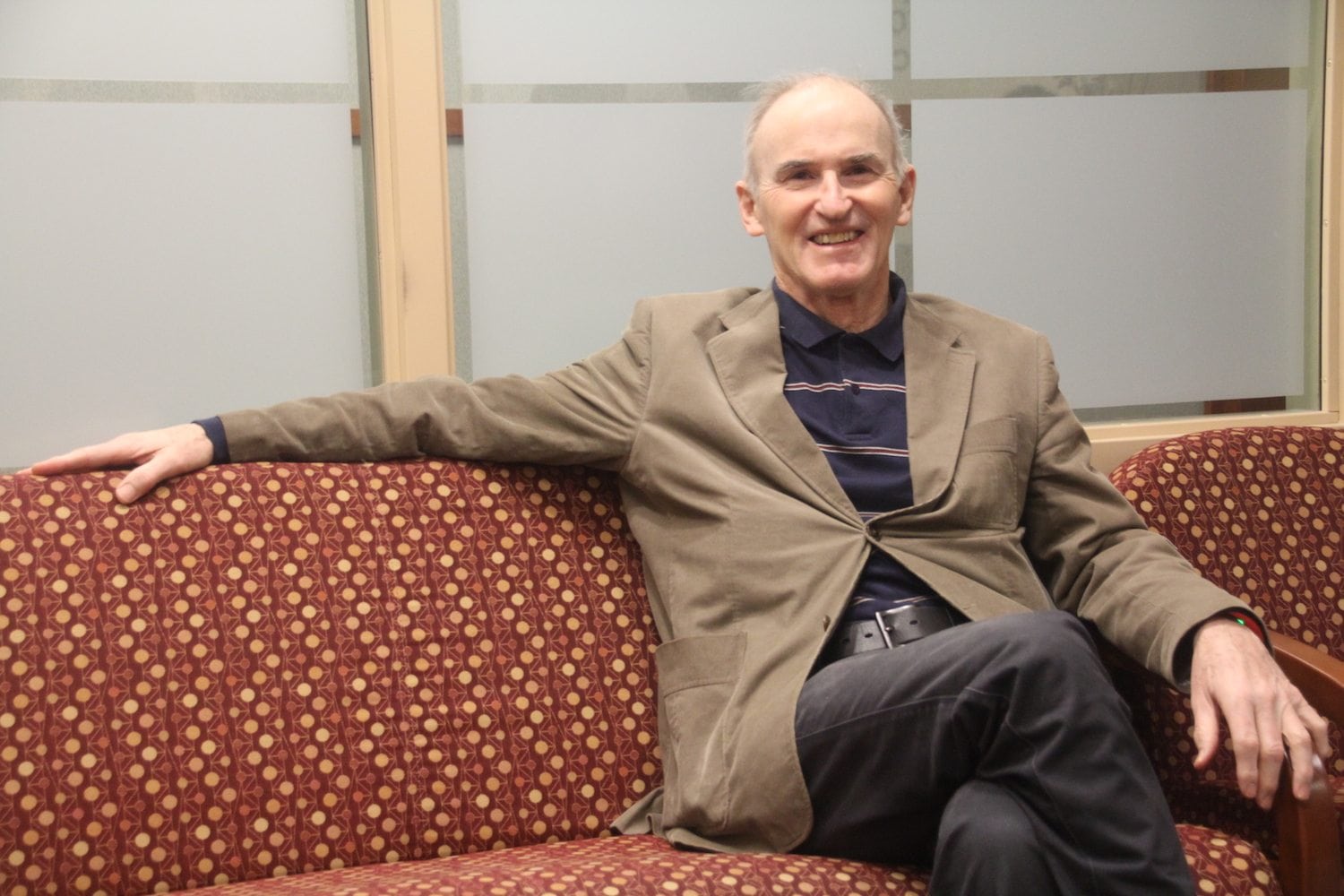<< Back
Aided by MSK study, Hartford Hospital Cancer and Tallwood Team Helping Monroe Man Fight Advanced Prostate Cancer

April 26, 2018
When Gordon Cleland found out he had advanced prostate cancer in January of 2017 he said he would do whatever it took to beat the disease. An avid runner and swimmer, the 68-year-old attorney said he was prepared physically to take on the rigors of surgery and treatment.
“Truth be told when I heard my PSA score [of 16] I had some fears about what that would portend and they proved to be correct. I did my best to motivate myself to get treated as quickly as I could,” said Cleland.
His first order of business was to find a top urologic surgeon to remove the cancer. Cleland, who had also recently successfully battled melanoma, asked a provider from another health system for the name of the best urologist in the region. His answer: Hartford HealthCare Tallwood Urology and Kidney Institute’s Dr. Joseph Wagner.
“I’m a lawyer, so when you get competitors recommending people who are not associated with their firm or their hospital that means something to me. The guy must be really good,” said Cleland.
Cleland, from Monroe, made the 50-minute drive to Dr. Wagner’s Farmington office to discuss his options for surgery. Typically, a patient with metastatic prostate cancer doesn’t undergo a prostatectomy—surgery to remove part or all the cancerous prostate gland. For decades, doctors believed the procedure wouldn’t be effective if the cancer had already spread to other parts of the body.
“That didn’t make sense to me. I expressed that to Dr. Wagner. He listened to me and started doing some research and speaking to his peers,” Cleland said.
Through the Hartford HealthCare Cancer Institute’s membership in the Memorial Sloan Cancer Alliance, Dr. Wagner found that Cleland would be a candidate for a recent MSK study.
“Under the study, when there are metastasis to just a few sites, patients undergo androgen deprivation therapy (injections to lower the male hormone testosterone) and radiation to the metastatic sites. The patient goes on to have a prostatectomy,” said Dr. Wagner, Director of Robotic Surgery at Hartford Hospital. “He was a perfect candidate. So we applied the protocol from MSK here locally and he did great.”
Prior to his surgery in late May of 2017, Cleland received radiation treatments at Hartford Hospital under the direction of Dr. Andrew Salner, Medical Director of the Hartford HealthCare Cancer Institute at Hartford Hospital. Salner says when the cancer has spread to only a limited amount of sites, like in Cleland’s case, those areas can be treated effectively using three to five highly focused sessions of stereotactic body radiation therapy, generally with few side effects.
“A team of highly specialized physicists and dosimetrists utilize sophisticated software to plan the treatment, and advanced linear accelerator technology not available at most locations facilitates the treatment delivery,” said Salner.
Following an eight-week course of daily radiation to the prostate bed at a hospital closer to his home, Cleland’s cancer was declared undetectable in August of 2017. He continues to see Dr. Wagner and his oncologist in Fairfield County for routine monitoring.
“I do not now have any detectable cancer, but I’m ready for any further challenge. Even if this whole experience only adds one additional year to my life, it will all have been worth it,” said Cleland.
Learn more about clinical trials being offered through the Hartford HealthCare Cancer Institute.